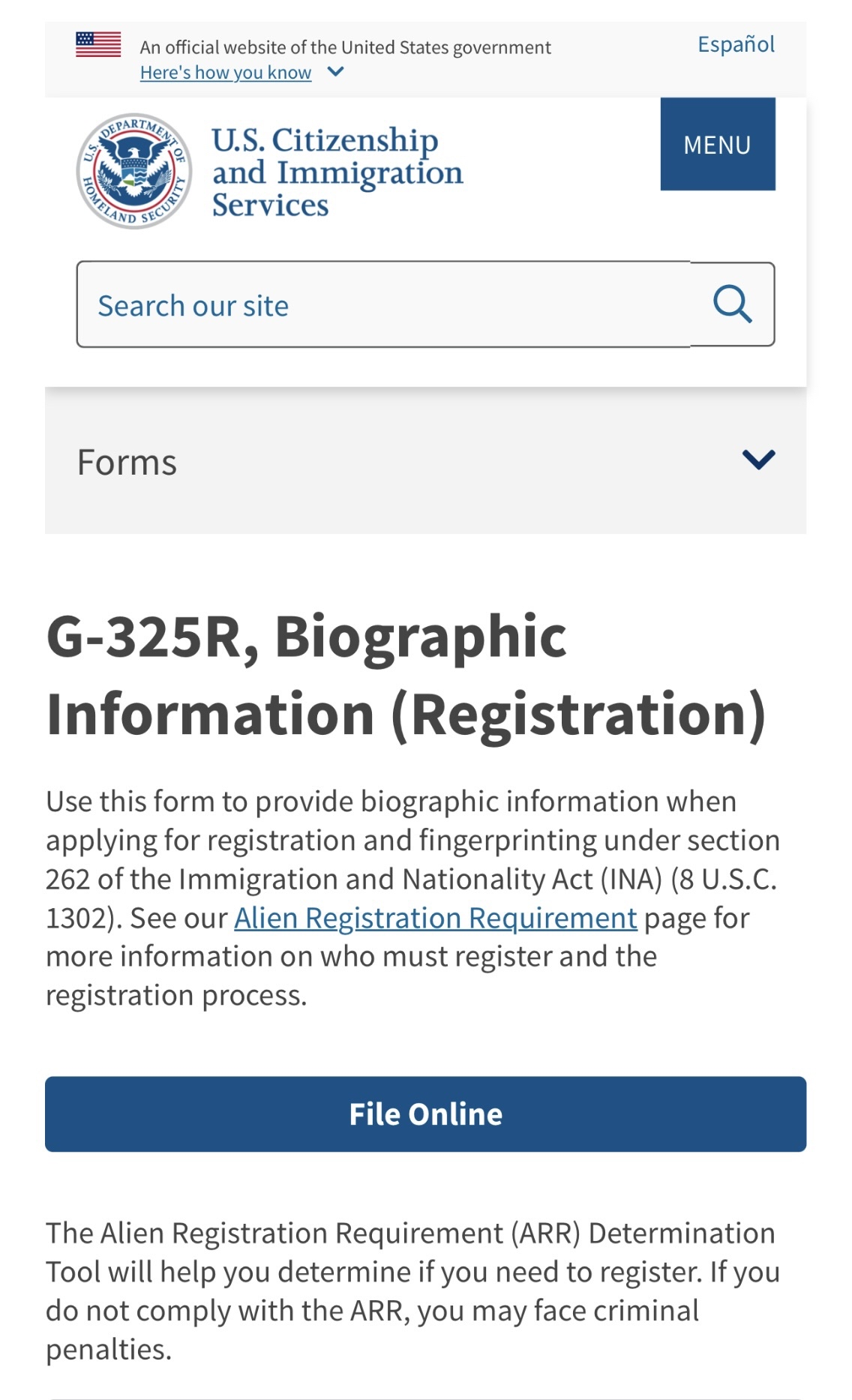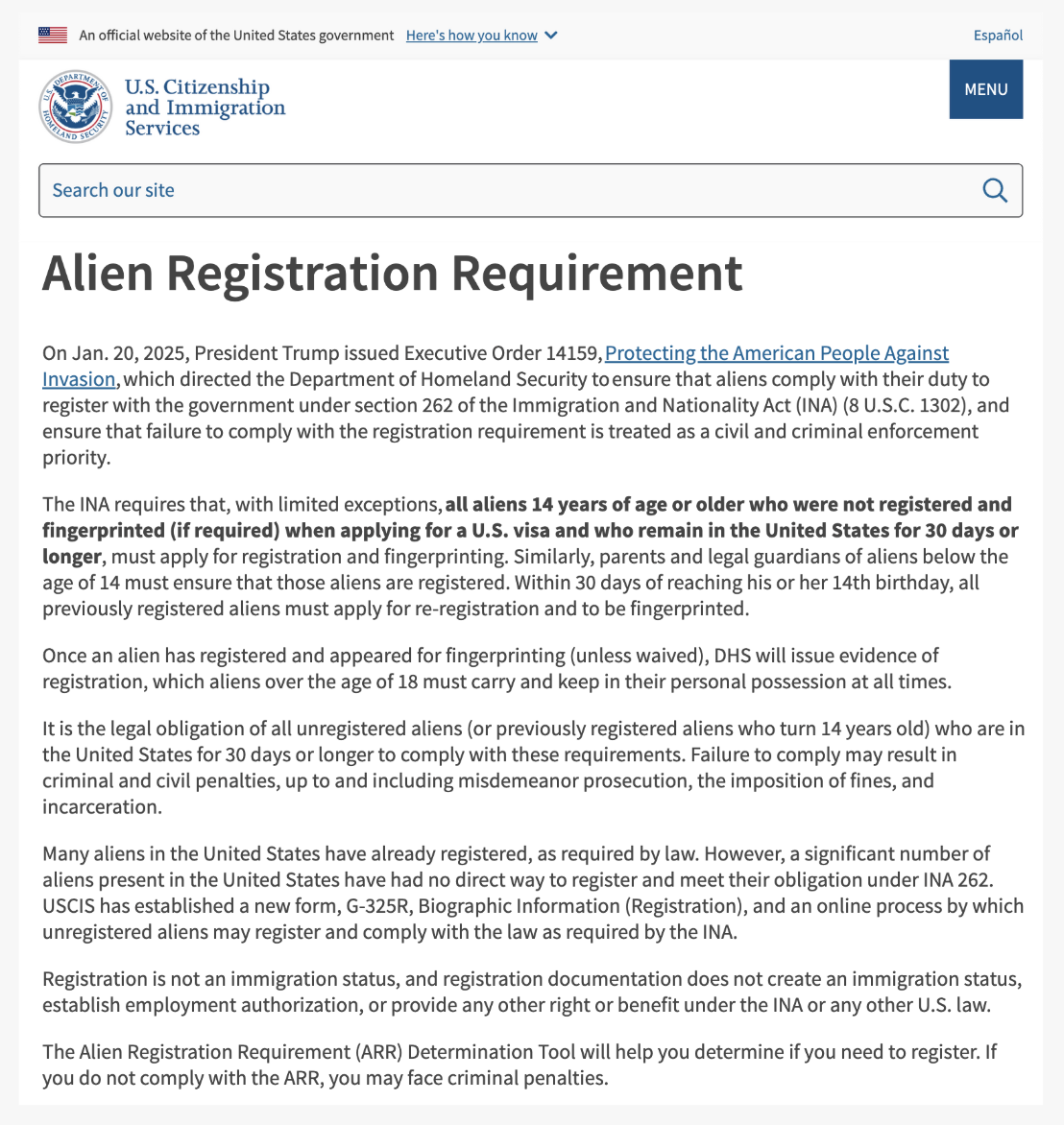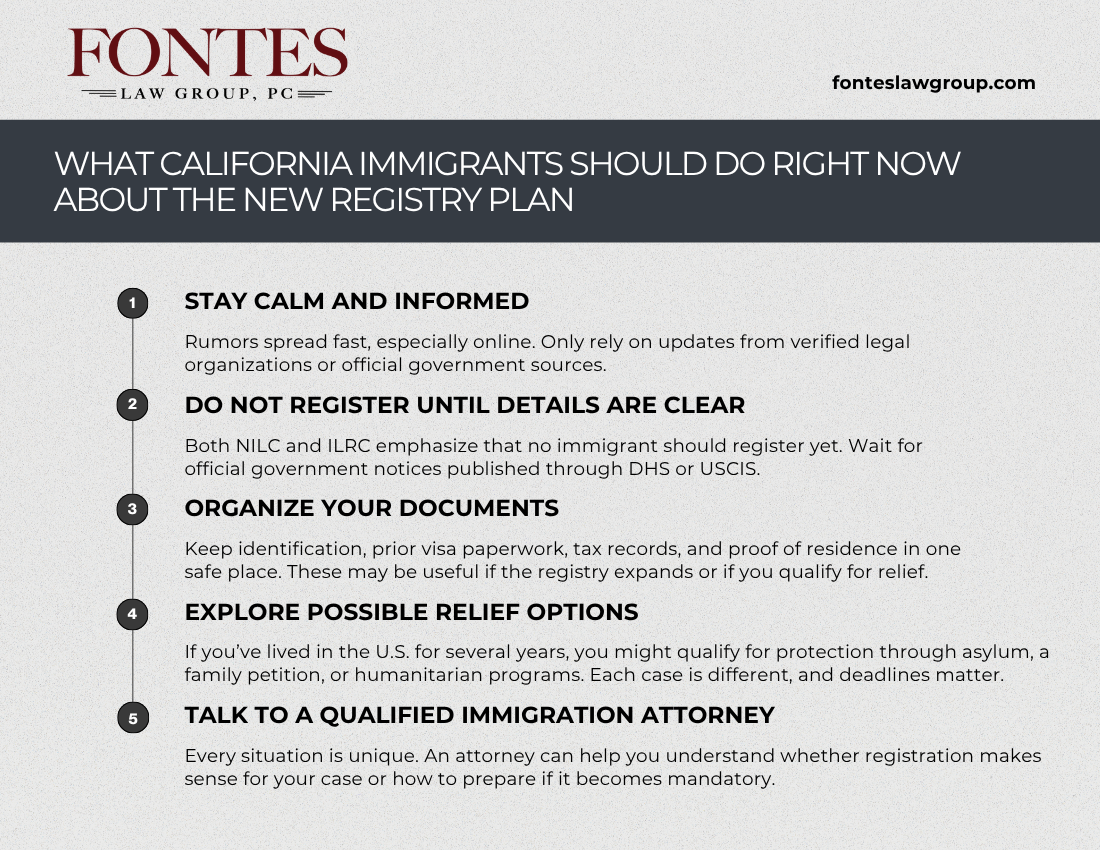Mandatory Registry for Undocumented Immigrants in 2025: What You Need to Know
You may have heard about a new “mandatory registry” for undocumented immigrants in 2025. For many families across California, this news feels confusing, frightening, and deeply personal.
People are asking:
Will I have to register? Will the government use that information to deport me? What happens if I don’t?
If you’re asking those same questions, you’re not alone. In this article, we’ll break down what’s known so far, what’s still unclear, and how Fontes Law Group Immigration Attorneys can help you stay informed and protected during this uncertain time.

What the 2025 Mandatory Registry Is About
In early 2025, immigrant rights organizations such as the Immigration Legal Resource Center (ILRC) and the National Immigration Law Center (NILC) raised concerns about reports that the federal government may begin enforcing an existing registration law that has long been part of U.S. immigration policy.
This law, found in Section 262 of the Immigration and Nationality Act (8 U.S.C. §1302), requires all noncitizens over age 14 who remain in the United States for 30 days or more to register with the Department of Homeland Security (DHS). Parents must register children under 14.
The ILRC reported in April 2025 that the government had posted a new form on the USCIS website, Form G-325R, which appears to be intended for people who have not yet registered. The form collects personal and biographic data such as name, address, and country of origin.
While the federal government has not issued any official announcement or rulemaking mandating registration for undocumented immigrants, advocates caution that this development could signal the government’s intent to actively enforce a long-dormant provision of immigration law.
Both NILC and ILRC emphasize that no one should provide information or complete Form G-325R until DHS publishes official guidance and immigrant legal experts have reviewed the process.
Understanding “Alien Registration”

According to U.S. Citizenship and Immigration Services (USCIS), “alien registration” is the process by which the U.S. government assigns a unique identification number, known as the Alien Registration Number (A-Number), to immigrants when they interact with immigration authorities.
This A-Number is typically issued to:
- Permanent residents (green card holders)
- Individuals applying for asylum or certain visas
- People placed in removal proceedings
It helps track immigration cases and applications across different agencies.
Historically, undocumented immigrants who had never applied for a benefit or been processed by DHS did not have to register or carry an A-Number.
The 2025 proposal would extend this concept to millions of undocumented residents, effectively requiring them to register with the government for the first time.
New Form G-325R
According to the Immigration Legal Resource Center’s Community Alert (April 2025), the government has introduced a new form, Form G-325R, for individuals who are not yet registered.
This form collects basic biographic information such as full name, address, country of birth, and family details. It was posted on the USCIS website as part of the administration’s plan to enforce the long-standing registration rule under federal law.
That rule, originally found in the Immigration and Nationality Act, requires all noncitizens over age 14 who remain in the United States for more than 30 days to register with the government. Parents must register children under 14 on their behalf.
The ILRC emphasizes that although this requirement has existed in law for decades, it has rarely been enforced. The current proposal would be the first nationwide attempt in modern times to apply it broadly to undocumented immigrants.The organization strongly urges immigrants not to complete or submit Form G-325R until DHS releases official regulations and immigrant advocacy groups can review the process. Doing so prematurely could expose personal data that might later be used for enforcement.
Why the Registry Matters
On paper, this new system may sound like simple data collection. In reality, it could affect nearly every undocumented person living in the U.S.
That includes:
- People who overstayed a visa years ago
- Parents of U.S. citizen children
- Workers using false or expired Social Security numbers
- Long-term residents who have lived peacefully in the U.S. for decades
In California, where nearly one in ten workers is undocumented, this policy has the potential to disrupt entire communities. Families are worried that registering could make them more visible to immigration enforcement. Others hope it might one day create a path to legal status, though there’s no guarantee of that.
The truth is, no one yet knows how this policy will be used.
Who Might Be Required to Register
DHS has suggested the registry will apply to people who:
- Are living in the U.S. without lawful immigration status
- Have been continuously present for a certain number of years
- Have no serious criminal record
While nothing is final, early reports indicate that those with pending immigration cases (like asylum, U visa, or TPS applications) may be temporarily exempt. So might certain DACA recipients, though that remains unclear.
The biggest concern is how the government will determine who qualifies and what will happen to those who register.
What NILC and ILRC Say Immigrants Should Know
Both the NILC and ILRC have published important guidance to help immigrants protect themselves:
1. Do not register until there is official confirmation.
The ILRC warns that no one should submit personal or biometric information until DHS publishes clear regulations. Signing up early or through unofficial channels could expose immigrants to scams or enforcement risks.
2. Registration does not grant legal status.
The NILC explains that even if registration becomes mandatory, it will not create legal status or protection from deportation. It’s purely administrative at this point.
3. Beware of misinformation and fraud.
Scammers may claim they can “pre-register” people or secure protection for a fee. Both organizations stress that these offers are false.
4. Know your rights during enforcement encounters.
Immigrants have the right to remain silent, to refuse entry without a warrant, and to request an attorney before signing any documents.
5. Stay connected to verified community resources.
Groups like the ILRC, NILC, and local immigrant legal aid organizations provide accurate, bilingual updates and free community workshops.
“Accurate information is the best protection in times like this, before sharing any data or responding to government requests, immigrants should know their rights and speak with an attorney they can trust.”
Attorney Martin C. Fontes – Immigration Lawyer
What Information the Registry May Require
According to early drafts reviewed by multiple outlets, the registry would ask participants to submit:
- Full name and aliases
- Current and past addresses
- Date of birth and place of origin
- Biometric data (fingerprints, photographs, possibly DNA)
- Employment history
- Family and dependent information
The Department of Homeland Security claims the goal is “accountability and transparency.” But immigrant advocates point out that this kind of detailed data could easily be used for enforcement.
If those records are ever shared with agencies like ICE, it could expose millions of undocumented residents to risk, even if they’ve lived here peacefully for years.
What You Should Do Right Now

How Fontes Law Group Can Help
At Fontes Law Group, we’ve represented countless families who faced fear, uncertainty, and shifting immigration policies. We know how quickly the law can change and how deeply those changes affect real lives.
Our bilingual immigration attorneys serve clients across Santa Ana and Riverside, helping Southern California’s diverse communities find clear answers and safe solutions.
Whether you’re unsure about your status, worried about deportation, or simply trying to understand your options, our team can guide you step by step with honesty, respect, and confidentiality.
FAQs About Undocumented Immigrants
Q: Do I need to register now?
No. As of now, DHS has not opened the registry for enrollment. Stay alert for official updates through USCIS.gov.
Q: Is this a path to citizenship?
There’s no guarantee. The registry could one day play a role in legalization, but for now, it’s about data collection, not permanent residency.
Q: Can the government share my data with ICE?
That risk exists. The government says it will safeguard information, but there’s no clear privacy protection law for this new system yet.
Q: What if I’m already in removal proceedings?
You should not register without legal guidance. Depending on your situation, registration could complicate your case.
Q: What if I have a U visa or pending asylum?
You may be exempt for now, but each case must be reviewed individually.
Helpful Resources
- U.S. Citizenship and Immigration Services (USCIS) – Alien Registration
- National Immigration Law Center (NILC) – Know Your Rights: Trump’s Registration Requirement for Immigrants
- Immigration Legal Resource Center (ILRC) – Community Alert: Registration Requirement April 2025 (PDF)
- Department of Homeland Security – DHS.gov
- ACLU Know Your Rights Guide
Bottom Line
The new 2025 immigrant registry is one of the most significant immigration developments in recent years, and it’s understandable that people feel anxious about what it means.
But confusion doesn’t have to lead to fear. With the right information and trusted legal support, you can take steps to protect yourself and your family.
At Fontes Law Group, our attorneys are here to help you understand your rights, prepare for what’s coming, and stay safe no matter how the law changes.
We proudly serve the immigrant communities of Santa Ana and Riverside, offering bilingual legal support in English and Spanish.
If you or a loved one are unsure how the 2025 registry could affect your immigration status, reach out today. We’ll listen, guide, and stand with you every step of the way.
